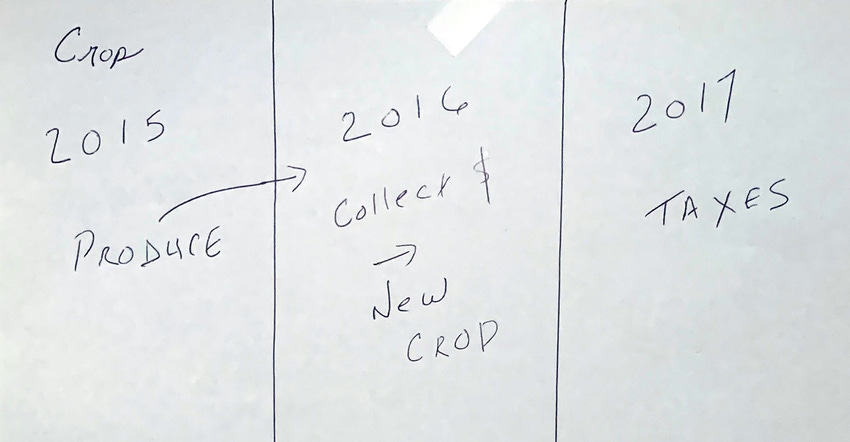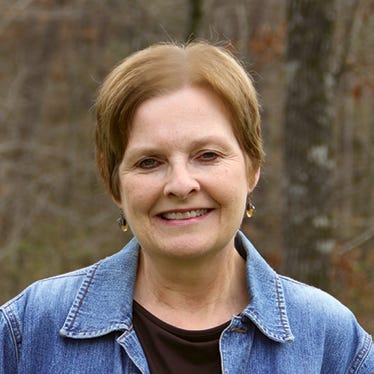September 14, 2022

I’d resided outside Illinois for close to three decades when my father passed away in 2018, leaving me to run our family’s midsize operation from Birmingham, Ala. With the help of three dependable farm operators, I’m gradually getting the hang of what works for me and the farm, despite living hundreds of miles away from my family’s ground.
Here’s my advice for other non-farm heirs:
Know the big picture from the small
First, you have to distinguish between bigger-picture and smaller-picture knowledge and goals.
“We run on a three-year cycle,” Dad instructed me as we sat side by side at the kitchen table in early summer of 2017. He scribbled on a sheet of scratch paper as he talked, creating a three-column grid to show how the pieces fit together.
“In 2015, we put in the crop,” Dad said, adding the word “produce” beneath column one.
“Then in 2016, we collect the money for the 2015 crop to cover the next year’s expenses for seed, fertilizer and so on,” he continued. In the 2016 column, Dad jotted “collect $ → new crop.”
Dad wrote “taxes” in the final 2017 column since that’s when the profit from 2015 (earnings minus 2016 expenses), collected in 2016, gets reported.
I consult that sheet of scratch paper, now posted above my desk, frequently to remind myself of the big picture that ensures our operation’s economic survival. I can still hear Dad’s voice when my eyes graze his slanted penmanship, an indelible mark of a lefty.
“If you blow through whatever profits you have from the previous year’s crop,” he summed up, “you won’t have the money to put in another.”
During the nine months between Dad’s diagnosis of congestive heart failure and his death, we convened over many big-picture issues related to farming. Investing in land. Conservation efforts. Illinois taxes.
Most of those conversations took place around the kitchen table. Other times, we talked above the sound of a classic Western playing on TV or while riding in the pickup, me in the driver’s seat and Dad narrating aloud as he scouted the fields.
But good farm management can’t be all talk and no action. Dad made sure I got my hands dirty.
On morning runs down the side road, I snapped photos of our fields and confiscated ears of corn and pods of beans to carry back to the house. There, we dissected each specimen, and I studied features of plant growth that I’d never contemplated as a teenager growing up on the farm.
I learned which checkbooks to use for which bills, met elevator managers and walked the wet patches of specific tracts.
Dad taught me that smaller-picture knowledge and goals have to align with big-picture commitments. If you’re suffering from poor yields compared to your neighbors, for example, maybe it’s time to try something new. You’ll need better numbers to fund next year’s crop.
Figure out where to be and when
This integrated educational approach taught me what a farmer can accomplish from afar versus which tasks need to be handled up-close.
From Alabama, I can write checks and join the occasional forecasting webinar. But I need to show up in Illinois to pluck an ear of corn from the field to see how well it’s filling out and test its firmness and color — all clues to potential bushels come fall.
I’ve found my sweet spot is taking three trips to Illinois throughout the year — during planting, harvesting and tax seasons.
Embrace uncertainty
Embrace your unique journey and expect the unexpected.
Despite the rich foundation Dad provided me, there was much he couldn’t predict — like a worldwide pandemic that reached every facet of our industry. Such uncertainty is what makes farming as a non-farm heir a unique and challenging journey.
I’ve discovered that even when we find our groove, we have to remain open to the unexpected juts and potholes lurking ahead.
Ryan is a farmer’s daughter from Clinton, Ill., and a professor at the University of Alabama at Birmingham. Following her father’s death and mother’s relocation to her Alabama home, Ryan manages the family farm from afar. The opinions of this writer are not necessarily those of Farm Progress/Informa.
About the Author(s)
You May Also Like






